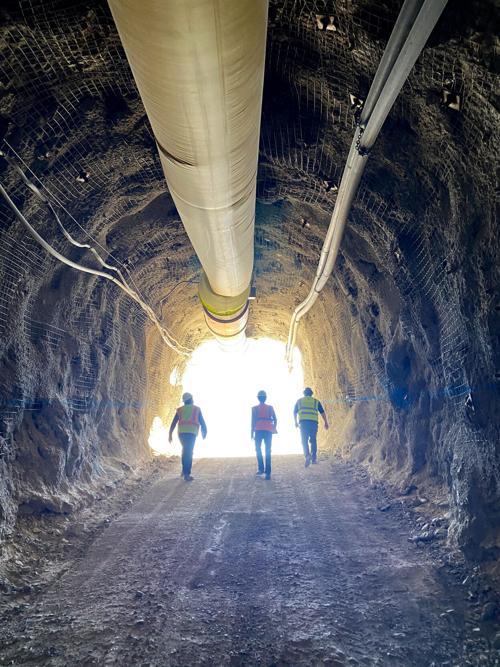It may seem contradictory to suggest that more mining is necessary to sustain Mother Earth.
But a new school at the University of Arizona aims to teach students that concept.
Demand for copper is expected to shoot up more than 200% in the coming decades because of its use in semiconductor wiring, solar panels, windmills and electric vehicles.
Officials want to make sure there’s a workforce ready to lead the production with a focus on sustainable extraction.
The Arizona Board of Regents recently approved a new School of Mining and Mineral Resources at the University of Arizona.
It will be jointly housed in the College of Engineering and the College of Science and involve the Lowell Institute for Mineral Resources.
The school will offer undergraduate, graduate and professional training in areas such as data science, business, social sciences public health and law.
“I always like to tell people that if you want to make a big difference in this world, engineering is the place to do it,” said David W. Hahn, Craig M. Berge dean of the College of Engineering. “And mining is one of the areas in which the creative problem-solving abilities and technical expertise of engineers is becoming increasingly important.”
The school will serve more than just students majoring in mining-related fields. One new introductory course, for example, will be geared to students who say they know little to nothing about mining.
It will explain the need for mineral resources and the technical, social, economic and environmental issues surrounding their acquisition, use and reuse. The course will explore the impact of developments like digitization and low-carbon technologies, as well as community and environmental health.
Analyst say copper will become “the new oil” as an in-demand commodity.
According to the Copper Development Association, pure electric vehicles use copper in the motors, batteries, inverters, wiring and in charging stations. They can contain more than a mile of copper wiring.
“For the first time in the history of mining anywhere in the world, our new school will rely on a holistic approach to mineral resource management,” said Moe Momayez, interim department head and David and Edith Lowell Chair in the Department of Mining and Geological Engineering.
A nationwide search for the school’s director is expected soon.
The new school will be advised by a committee of representatives from across campus, the mining industry, government and private agencies.
“We are excited about the cross-college collaboration,” said Carmala Garzione, dean of the College of Science. “We expect that this new school will become a nexus of activities directed toward more sustainable acquisition of minerals that are critical to cleaner and more efficient energy practices.”
The creation of the school is supported in large part by a $2 million gift, plus a $2.5 million challenge grant, from the Lundin family.
The family leads the Lundin Group, made up of 14 publicly traded companies in the natural resource sector operating in more than 25 countries.
“This is a significant milestone for the natural resources industry,” said Jack Lundin, president and CEO of Bluestone Resources Inc., who is also a College of Engineering alumnus and Lowell Institute board member. “Now, more than ever, we need a university mining and mineral resources education program that incorporates a focus on environmental, social and governance issues.”
The University of Arizona operates the San Xavier Underground Mining Laboratory — the only mining lab in the U.S. with a working vertical shaft.
The four-level mine is 250 feet at its deepest and, aside from studies, it is used by federal and state agencies and organizations that do underground research, tunnel safety and mine rescues.





